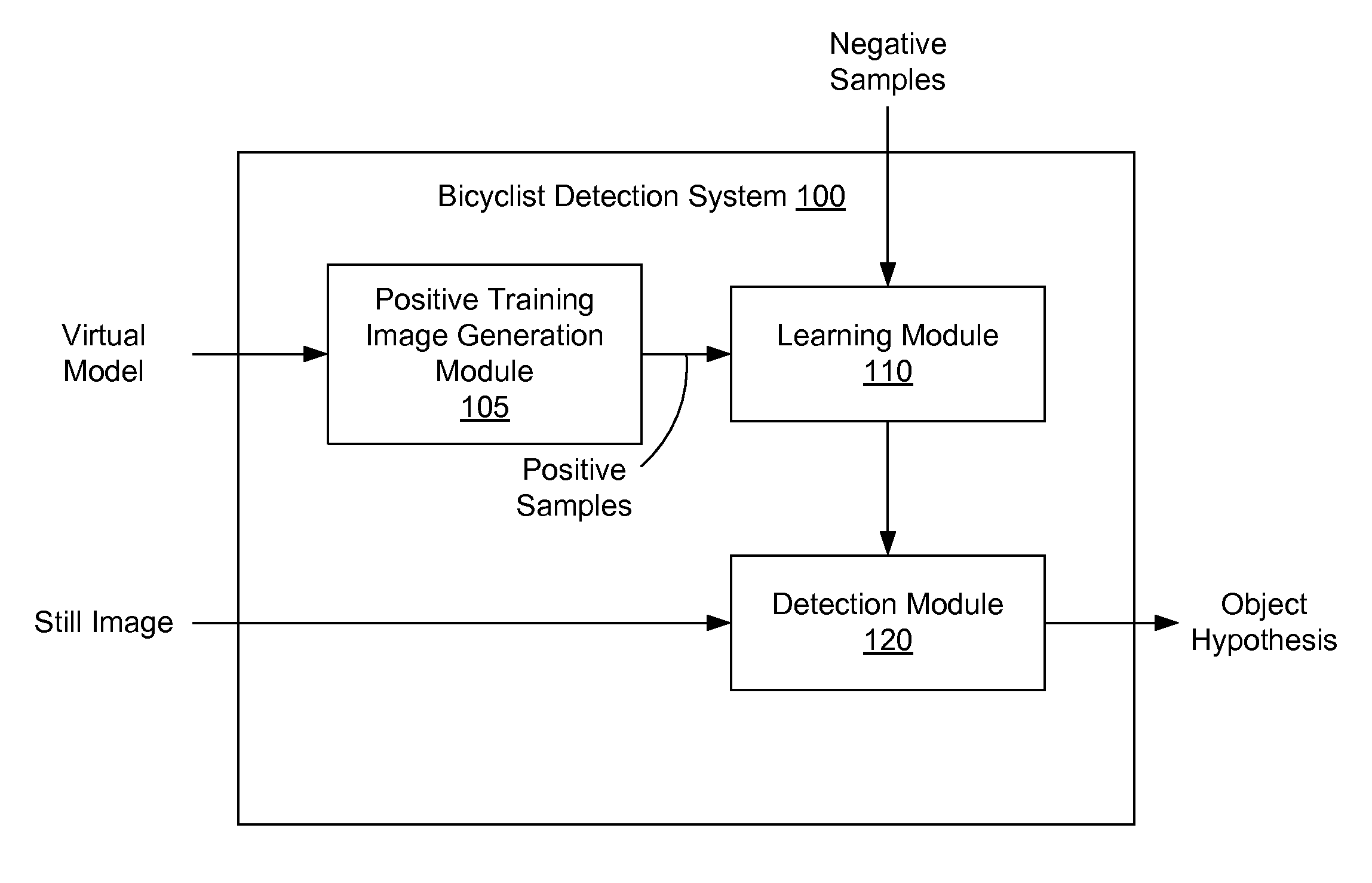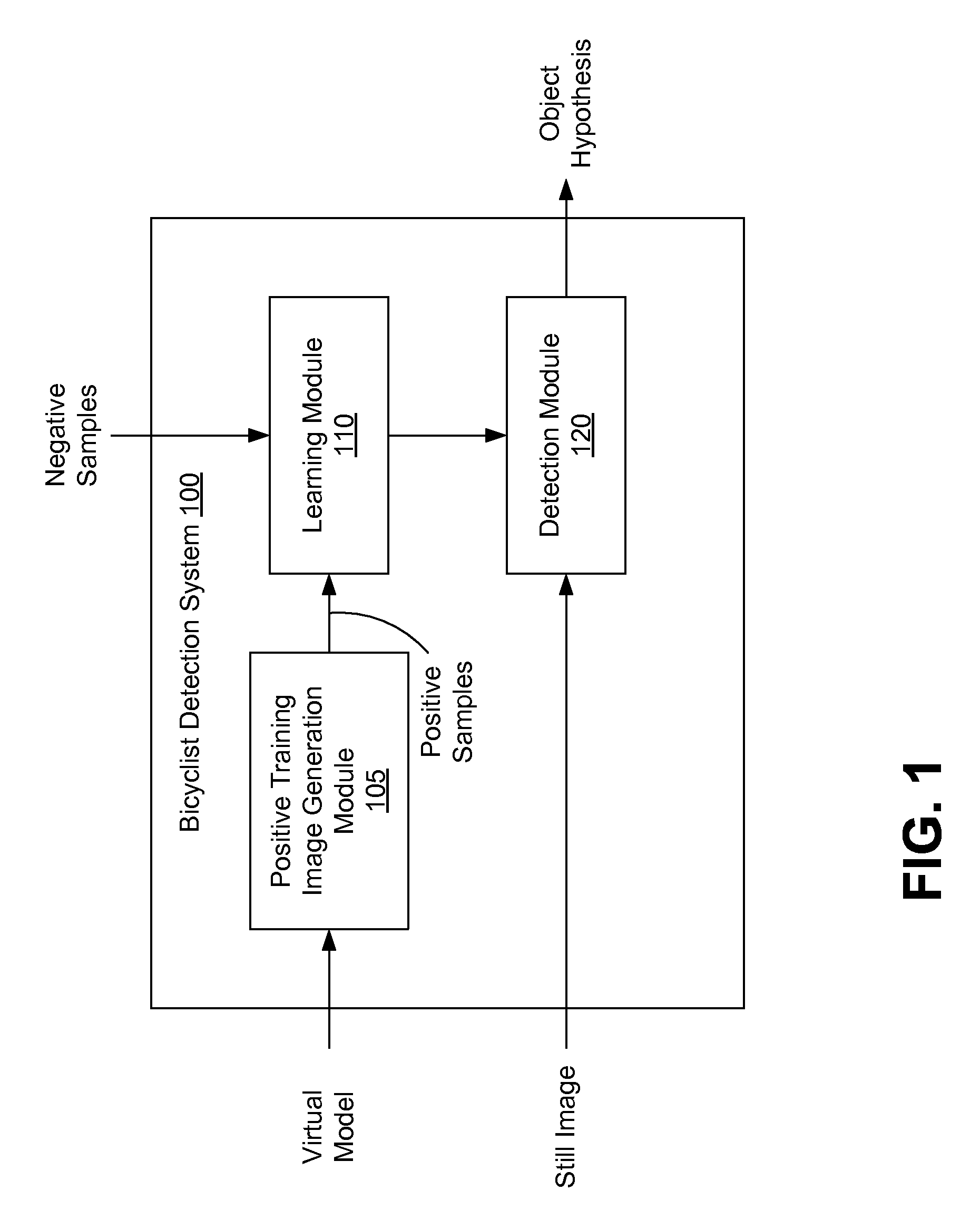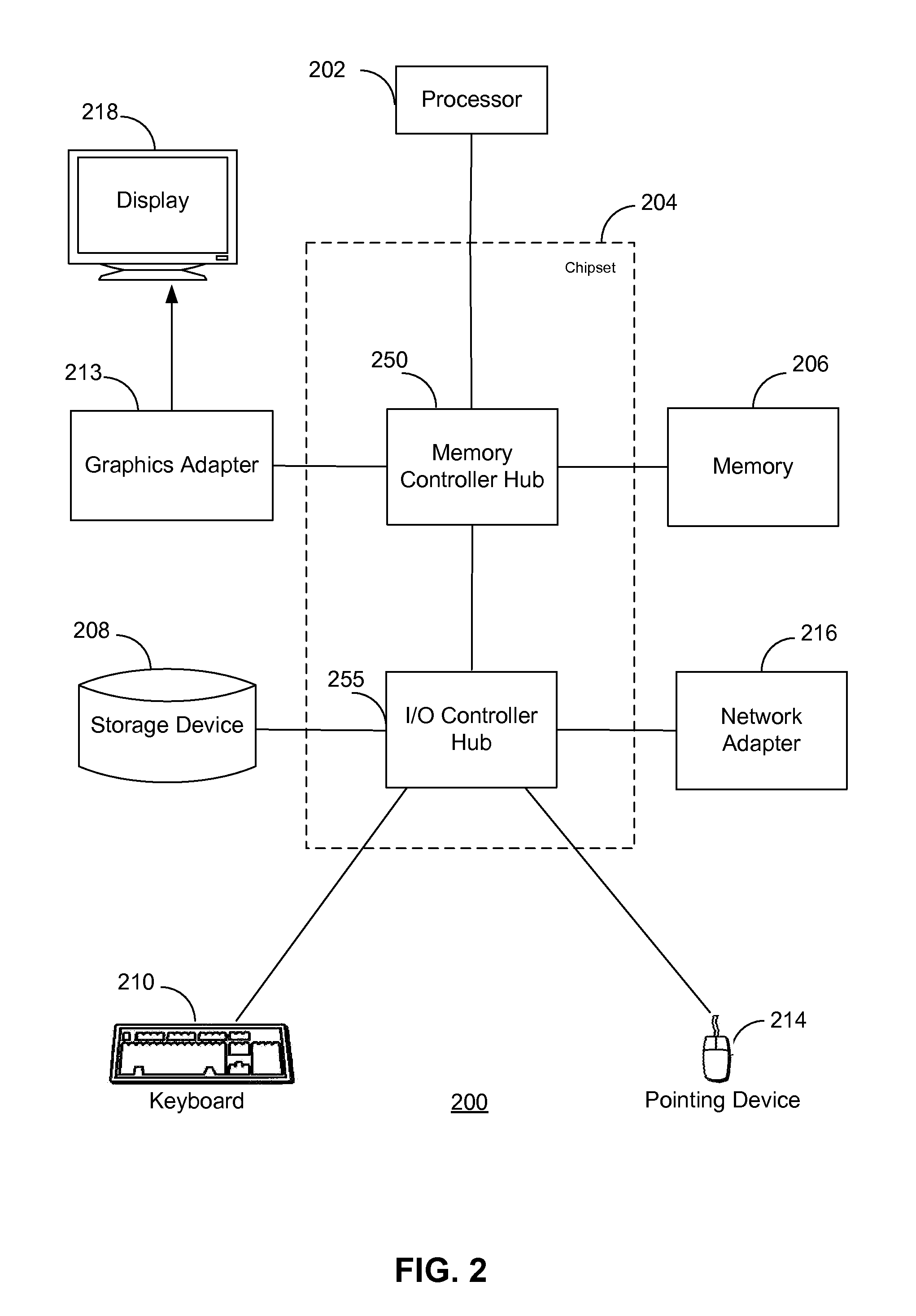Real-time bicyclist detection with synthetic training data
a real-time bicyclist and training data technology, applied in scene recognition, instruments, computing, etc., can solve the problems of lack of an extensive training set for training the object detection model, difficult to find positive samples for other types of objects (e.g. bicyclists), and many problems with current object detection systems
- Summary
- Abstract
- Description
- Claims
- Application Information
AI Technical Summary
Benefits of technology
Problems solved by technology
Method used
Image
Examples
Embodiment Construction
[0021]Embodiments are now described with reference to the figures where like reference numbers indicate identical or functionally similar elements. Also in the figures, the left most digits of each reference number corresponds to the figure in which the reference number is first used.
[0022]FIG. 1 is a high-level block diagram illustrating a bicyclist detection system 100, in accordance with an embodiment. The bicyclist detection system 100 includes a positive training image generation module 105, a learning module 110 and a detection module 120. The bicyclist detection system 100 may be used in a vehicle to determine the presence (or absence) of a bicyclist in the surroundings of the vehicle. As used herein, “bicyclist” refers to the combination of a bicycle and its rider.
[0023]The bicyclist detection system 100 may be used, for example, in a vehicle to increase the safety of the people inside the vehicle and the safety of bicyclists sharing the road with the vehicle. Drivers, while...
PUM
 Login to View More
Login to View More Abstract
Description
Claims
Application Information
 Login to View More
Login to View More - R&D
- Intellectual Property
- Life Sciences
- Materials
- Tech Scout
- Unparalleled Data Quality
- Higher Quality Content
- 60% Fewer Hallucinations
Browse by: Latest US Patents, China's latest patents, Technical Efficacy Thesaurus, Application Domain, Technology Topic, Popular Technical Reports.
© 2025 PatSnap. All rights reserved.Legal|Privacy policy|Modern Slavery Act Transparency Statement|Sitemap|About US| Contact US: help@patsnap.com



